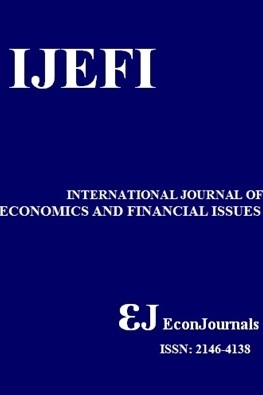Assessing the Role of CSR Practices of Commercial Banks in Enhancing Financial Inclusion: A Study on Banking Sector in Bangladesh
Assessing the Role of CSR Practices of Commercial Banks in Enhancing Financial Inclusion: A Study on Banking Sector in Bangladesh
- Başlangıç: 2011
- Yayıncı: İlhan ÖZTÜRK
Consolidated Group of Taxpayers: Infusion into the Russian Economic Practice
Performance of Islamic and Conventional Banks in Pakistan: A Comparative Study
Shahab AZİZ, Maizaitulaidawati HUSİN, Shujahat Haider HASHMİ
Regional Resources Capitalization: Theoretical and Methodological Basis
Julia V. LYSHCHİKOVA, Anna V. ORLOVA, Yevgenia V. NİKULİNA, Yevgeny İ. ANOKHİN
Malaysia’s Domestic Value Added Export: The Role of Governance and Strategic Policy Reforms
Ihyaul Ulum, - Rizqiyah, Ahmad Waluya Jati
Jaja SUTEJA, Ardi GUNARDİ, Annisa MİRAWATİ
Methodological Approaches to the Diagnosis and Forecast of the Long-Wave Fluctuations in the Economy
Marat Rashitovich Safiullin, Leonid Alekseevich Elshin, Elvira Gumarovna Nikiforova
Social and Macroeconomic Uncertainty and Private Savings: A Case Study of a Developing Economy
Anjum SİDDİQUİ, Abdul WAHEED, Haider MAHMOOD
Natalia A. ZAİTSEVA, Valentin S. KORNEEVETS, Elena G. KROPİNOVA, Tatyana Yu. KUZNETSOVA, Ludmila V. SEMENOVA
